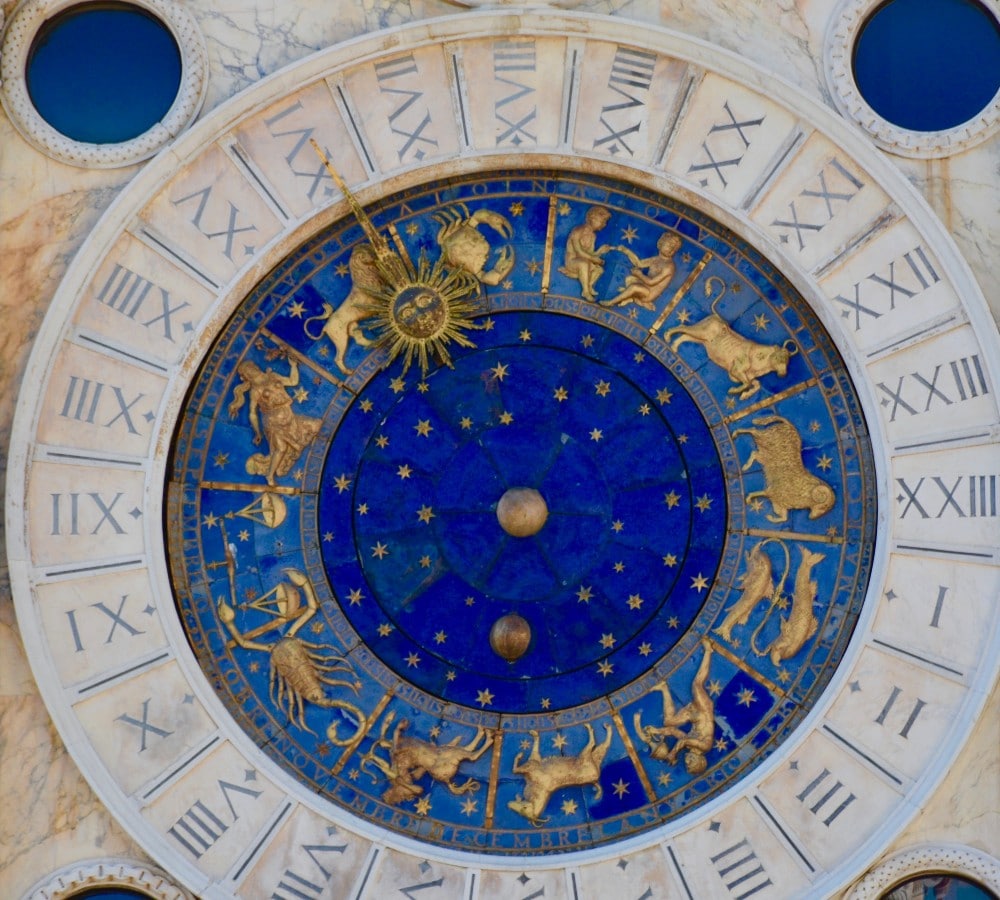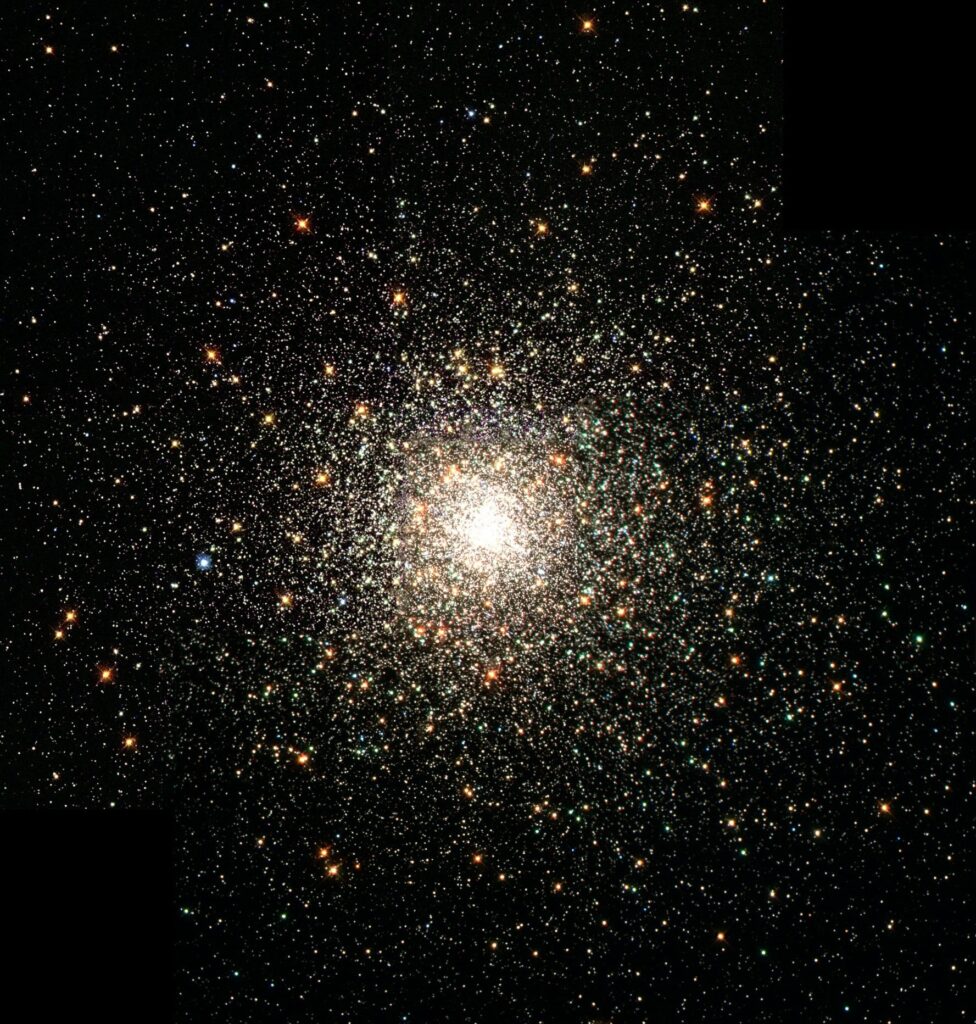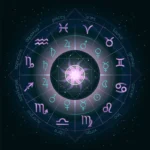
There’s no question about it: astrology has taken over the internet by storm. Millennials are ditching religion for astrology and here are the top 5 reasons why.
Discussions on Tumblr to independently-created stand-alone websites are an embodiment of this. Young people can’t stop talking about horoscopes, Zodiac signs, the cosmos, and tarot cards.
This shouldn’t come as a surprise to anyone, though.
There is a surge of astrological references all around us today. Pop culture has embraced this ancient art wholeheartedly and even intellectuals find themselves drawn to the study of the cosmos!
Yet many people can’t help but compare astrology with religion. Some try to draw similarities, and even some go so far as calling this ancient art a “load of rubbish!”
Thus, it is necessary to clarify things between the two. Spoiler alert: there’s barely any similarity at all!
How does mainstream religion differ from astrology?

As defined by The New Webster’s Dictionary, religion is “man’s expression of his acknowledgment of the divine” and “a system of beliefs and practices relating to the sacred and uniting its adherents in a community.”
For our purposes, religion is a structured belief in a higher being. It is usually established by significant historical figures such as Jesus, Mohammed, and Buddha to seek the ultimate “truth” and salvation for the afterlife.
Unfortunately, each religion tends to impose its views. Their methods of achieving this truth are often in disturbing and harmful ways.
In some cases, indigenous peoples are forced to convert or be killed. Historically, we can see this as Christianity was forced on non-Christian communities. This was the norm, especially when European powers started to colonize Africa and Asia.
Similarly, Hindus continue to practice exclusion by labeling some as untouchables. Such millennia-old practice continues to deny some people of their equal rights.
On the other hand, astrology is “the art of predicting or determining the influence of the planets and stars on human affairs.” It has existed for thousands of years and is practiced by different cultures simultaneously.
Astrology does not have any structure, nor authorities that forcibly impose it. It centers on a person so that they would be able to live a fulfilling and happy life.
Astrology is also very forgiving when this ancient art mixes with other beliefs. Did you know that the Christian royal courts of Europe employed astrologers even up to the 19th century?
Are there any statistics about this “conversion” happening?
Certainly! In a 2009 survey by The Harris Poll, 26% of American adults believed in astrology. This statistic went up by 3% in a 2013 study. Unsurprisingly, it is the millennials who comprise the most believers.
This data is consistent with another more recent survey conducted by the Pew Research Center. As of 2018, 29% of adult Americans believe in astrology. 34% of believers belong to the millennial generation.
Experts expect these numbers to balloon as time progresses. Today, greater consciousness of astrology is becoming known to the public.
Sidenote: The National Science Foundation made a similar study in 2012. Unsurprisingly, their findings were consistent with that of the Harris Poll.
More and more are accepting the idea of astrology. Only a little more than half of Americans say that astrology is unscientific. Compared to the results of their 2010 study, 2/3 of American adults claimed the same.
Why is this happening?
Several factors affect this resurgence of astrology. But there are five significant reasons believed to be the most prevalent.
#1: Astrology is not strict
Endless rules and rituals are characteristics of religion.
They are fascinating, but over time it gets old and irrelevant. The number of rules that govern the lives of their members can also get suffocating.
For example, followers of the Roman Catholic and Eastern Orthodox churches are relatively free to do what they want. Yet when they start speaking out against the institutions, they can get excommunicated. They are condemned to hell and ostracized from society.
The opposite is true of astrology.
Because there is no leader nor a strict hierarchy, followers are free to do what they want with their lives.
Astrology does not force people to follow what it says down to a T. Man has free will, and astrology respects that. They may even overturn gloomy forecasts to their favor.
Summed up, astrology is best described in this Latin quote: astra inclinant, sed non obligant. The stars incline us but do not bind us.
#2: Astrology embraces all kinds of people

Nowadays, people from all walks of life are virtually able to join whatever religion they want.
But for centuries, religions tend to gatekeep the identity of their members. Sometimes, though, religion is an excuse to harm other people who are “different.”
In the old days, it was fashionable for Christians to persecute Jews. It even escalated to the Holocaust, where 6 million Jews died under Protestant-majority Germany.
Even today, Muslim minorities in Buddhist Myanmar are being persecuted for their faith and ethnicity.
Religions such as Zoroastrianism strictly forbid non-Persians to join their ranks. This is out of fear that it may “crumble” the very fabric of their identity. Islam is known to forbid homosexuality since it is “forbidden.”
Many Muslim-majority countries even have the death penalty as punishment for this “crime.” This punishment can be found on the Shari’a Law, a legal code based on the teachings of the Qur’an.
Astrology, on the other hand, does not discriminate or persecute. All are welcome to be its believer, or perhaps a friend that treats it as a casual fancy. It does not even get mad at its haters!
Why is this so?
The celestial bodies do not stop telling the fate of those who do not believe it. It may even be possible that the acceptance or rejection of astrology by a person was already foretold (no hard feelings, guys).
Astrology is open for anyone and everyone. You are not just defined by your background or skin color, just as the cosmos is vast and limitless.
#3: Astrology is compatible with other beliefs
Contrary to popular belief, many traditions have been fusing religion with astrology for thousands of years.
An example of this is the Kabbalah, a 2000-year old Jewish practice of interpreting the bible and cosmos. Using secret codes and metaphors infused with divine energy, it can help enhance a person’s spiritual wellbeing.
Even Muslims used to believe in astrology.
They fused it with the discipline of astronomy. It was used to determine the direction where they would pray, among others. Heck, it was even a program in an Islamic university!
As for political ideologies, astrology does not dictate anything. Unlike major world religions, Astrology does not seek to control what a person thinks.
Some people think that fusing different belief systems is a way to improve themselves.
Again, astrology is not structured or imposing. It flows along with the changes of time and perceptions of society. It is the perfect companion for people seeking to enrich themselves holistically.
#4: Astrology is accessible
Religion understandably has an aura of being distant, holy, and intimidating.
The massive churches, doctrines, and everything else can get confusing.High ranking members of these organizations seemed to be too high and mighty for ordinary people to approach.
These characteristics widen the gap between the spiritual and earthly dimensions even further.
Furthermore, there are also religious believers who tend to alienate those who aren’t exactly purists. If someone is even at the least bit odd, hardliners tend to condemn them.
Other religions even go so far as excommunicating. This is the act of expelling someone from the community for defying or questioning the institutions.
Such feelings of a distant religion and unhappiness over the non-openness of most traditional beliefs drive young people to choose astrology.
Resources on astrology are plentiful all around the world. Anyone can buy a book about it, read internet articles, and consult astrologers.
Add to that, the learning materials in this ancient art are relatively inexpensive!
Some astrologers are even offering affordable online masterclasses for newbies. Not to mention, there isn’t a lot of paraphernalia needed!
The astrology community itself is open to anyone curious. Practitioners worldwide open their doors to those who seek to find enlightenment through the celestial dimension.
#5: Astrology is very personal
While there are a few exceptions, religion is generally concerned with the community.
It is a good thing, especially when the common good is involved. Yet, it mostly overlooks the needs of an individual. This characteristic makes some people feel that they aren’t represented enough.
The opposite is true of astrology.
While astrology was used to determine kingdoms and countries’ destiny, its focus is very much the individual. This is because astrology believes that no one can define the course of events more than us humans.
Every detail of a person’s life is essential to astrology. A person’s time of birth, birthday, even their place of birth- all of it plays a part in their chart.
All these factors considered, it is no longer a surprise why more and more young people are choosing astrology. Through this ancient art, they see their true selves reflected in the cosmos.
What are the other types of astrology that I can choose?

The most common type of astrology today is closely linked to the Hellenistic (Greek) tradition. Called Western Astrology, this was developed in the ancient world. It was perfected by the Europeans and now safeguarded by Americans.
Many great philosophers in Ancient Greece subscribed to this. The most notable is Pythagoras. Yes, the guy that made the Pythagorean Theorem loved astrology.
They believed that the pantheon of gods and the constellations on the heavens determined the mortal world’s fate. Eventually, it fused with the much older Babylonian tradition. Soon the Medieval art of tarot card reading and Numerology was added too.
But there are also equally good forms of astrology.
Many still subscribe to the Chinese tradition of Feng Shui. For its followers, a person’s chi or life energy must be enhanced. Each year is assigned a real or mythological animal and an element. When combined, these two embody all those born during that year.
Horary Astrology is also a subtype that highlights each hour of the day. The exact positioning of heavenly bodies at a precise moment can influence the outcome of something. It is practiced along with Hellenistic Astrology.
Another that is widely adhered to is the Vedic or Indian Astrology. This was founded more than two thousand years ago. It is so identical yet, at the same time, very much different from the Western tradition. It has rasi or zodiacs with symbolisms, houses (much like horology), among others. It is also considered as a respectable field of study. Some Indian universities offer programs in the said astrological tradition.
Final Word
So, which one should you choose? Is it religion or astrology? The answer ultimately lies in your personal beliefs and conscience. Each one aims to guide man along with this life through unique ways.
But it is also important to remember that you are not obligated to restrain yourself to only one belief. Contrary to what others may say, you are free to choose and fuse different ideas as you see fit.
Astrology does not claim to be perfect in any way. After all, it is us humans who interpret what the cosmos say. But it does infuse the wisdom of the ages into its predictions.
No matter what you believe in, there is only one person who can truly embody the course of destiny: you.
Whether you choose to subscribe to the structure and rigidity of religion or the changing flow and freedom of astrology, the ultimate determiner of how to live a good life will always be you and your decisions.



